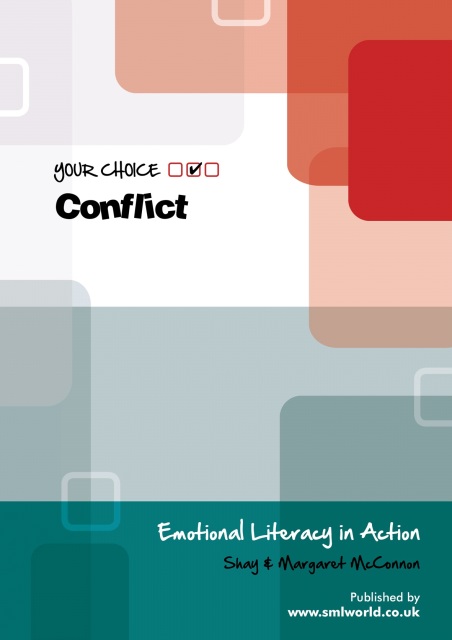- Behaviour Primary
- >
- Your Choice: Conflict Programme
SKU:
Your Choice: Conflict Programme
£29.95
£29.95
Unavailable
per item
This programme aims to prepare students to deal with conflicts in positive ways. It helps them to understand why conflicts occur, how they can be escalated or defused and teaches successful ways of handling them.
Conflict would appear to be an inevitable part of life. It exists at global, local and personal levels. Young people, who experience conflict at home, in school or with friends, can often lack the skills to handle these conflicts in satisfactory ways. This course gives students opportunities to learn and practise the skills of conflict resolution.
Item description |
Conflicts can be handled in four basic ways: aggression, withdrawal, mediation and negotiation. Negotiation, which respects both parties' needs, and views the conflict as a shared problem, is generally the most helpful way of resolving conflict.
Strategy 1
Encourages reflection on personal experience of conflict.
Strategies 2-3
Covers the extent and range of conflict in the world at international, local and personal levels.
Strategies 4-6
Young people examine how people normally respond to conflicts, identify behaviours which escalate and those which defuse conflicts, and decide on the most successful way of resolving conflicts.
Strategies 7-8
The skills of negotiation are taught and practised, and feedback given on their use.
Strategies 9-10
Young people decide on ways of reducing existing conflict in their lives and look at practical ways of preventing conflicts from arising.
Strategy 11
Young people assess their conflict management skills, establish behaviour goals and are given the opportunity to commit themselves to these goals using a structured plan for behaviour change.
Strategy 12 Evaluation.
Pages 52
Strategy 1
Encourages reflection on personal experience of conflict.
Strategies 2-3
Covers the extent and range of conflict in the world at international, local and personal levels.
Strategies 4-6
Young people examine how people normally respond to conflicts, identify behaviours which escalate and those which defuse conflicts, and decide on the most successful way of resolving conflicts.
Strategies 7-8
The skills of negotiation are taught and practised, and feedback given on their use.
Strategies 9-10
Young people decide on ways of reducing existing conflict in their lives and look at practical ways of preventing conflicts from arising.
Strategy 11
Young people assess their conflict management skills, establish behaviour goals and are given the opportunity to commit themselves to these goals using a structured plan for behaviour change.
Strategy 12 Evaluation.
Pages 52

